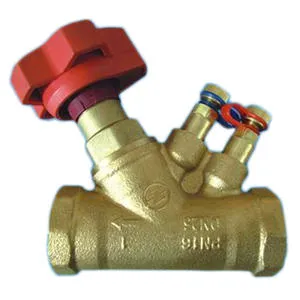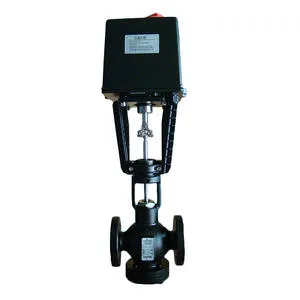With the continuous progress of technology, the field of industrial automation has also achieved tremendous development. As a key component, electric control valves are widely used in various industrial fields, making important contributions to the stability and efficiency improvement of production processes.

1. Principle and composition of electric control valve
Electric control valve is a device that can automatically adjust fluid flow, pressure, or temperature based on preset signals or parameters. It consists of an executing mechanism and a control part. The actuator is usually driven by an electric actuator, which can adjust the opening of the valve according to the control signal, thereby controlling the amount of fluid passing through the valve. The control part includes sensors, controllers, and human-machine interfaces for collecting real-time data, processing signals, and interacting with operators.
2. Application field
Electric control valves are widely used in many industrial fields, including energy, chemicals, water treatment, pharmaceuticals, food, and so on. Taking the energy field as an example, electric control valves are used to control the steam flow of boilers to ensure stable operation of the system. In the chemical industry, it can be used to regulate the flow rate of raw materials in chemical reactions, thereby achieving precise production control. In addition, electric control valves are also used in water treatment plants to control the pressure and flow of water flow to ensure the stability of the water supply system.
3. Advantages and Challenges
Electric control valves have many advantages over traditional manual valves. Firstly, it can achieve precise flow control, improving the stability of the production process and product quality. Secondly, the electric control valve can be remotely controlled, reducing manual intervention and labor costs. In addition, it can dynamically adjust the opening of the valve according to the actual situation to meet the needs of different working conditions.
However, electric control valves also face some challenges in the application process. Firstly, there is technological complexity and high cost. Compared to traditional manual valves, electric control valves require more equipment and technical support, increasing initial investment. Secondly, there is a dependence on power supply and maintenance. The electric control valve requires a stable power supply, and if the power supply is interrupted, it may affect the production process. In addition, maintenance and upkeep also require professional technical personnel, which increases operating costs.
4. Future development trends
With the continuous deepening of industrial automation, electric control valves are also constantly innovating and developing. In the future, we can look forward to more intelligent electric control valve systems, including stronger automation control capabilities, higher precision flow regulation, and simpler maintenance methods. At the same time, with the promotion of renewable energy and the improvement of energy efficiency, the application of electric control valves in the energy field will become more widespread, making contributions to achieving sustainable development goals.

In short, electric control valves, as an important component of modern industrial automation, play an irreplaceable role in improving production efficiency, product quality, and automation level. Despite facing some challenges, with the continuous progress of technology, the development prospects of electric control valves are still very broad. Through continuous innovation and application, electric control valves will continue to play an important role in various fields, promoting the modernization and sustainable development of industry.